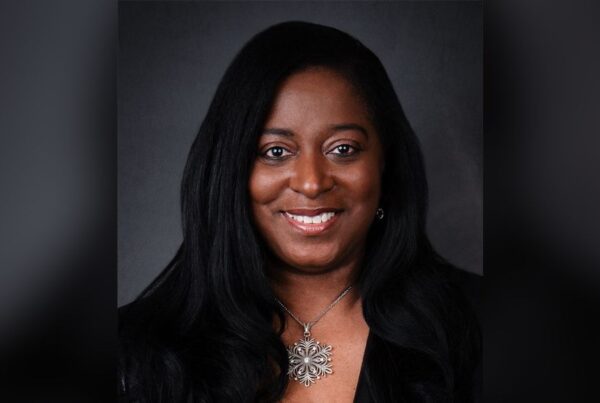Ex-owners of wholesale broker told to pay millions over fraud

A ream of email evidence left a trail of breadcrumbs that informed a High Court decision that a father and son broking duo, the former owners of insurance broker AFL Insurance, must pay millions in damages due to fraudulent misconduct after misrepresenting company financials during a sales process.
Former AFL owners Alec and Bob Finch were deemed liable for £6.1 million of damages in the recent judgment, which found that the ex-directors had been aware of a £3.5 million client money hole and that sums owed to the company had been misrepresented to former Cooper Gay CEO Toby Esser’s Next Generation Holdings Limited, the 2017 buyer of a 58% stake in the business, in the run up to the deal.
“This email will self-destruct in 5 mins” – AFL emails showed client money issues
“This email will self destruct in 5 mins.”
This was how former AFL CFO Keely Dalfen signed off a 2011 email in response to a request to her boss Alec Finch, then chairman and director, AFL.
Alec Finch’s email had come as the company had insufficient funds to meet expenses. In a proposal “borne out of expediency” to Dalfen, who appeared to oblige based on correspondence, he suggested drawing down receivable commissions and fees from client accounts to “cover our needs over the next week or so”.
“I will then make arrangements in September to rectify the position if those commissions/fees are still, by then, outstanding,” Finch said.
“… potentially I could get kicked out of the Institute if they found I had done it with intent. I think we should cover our backs and make sure it’s a one off,” Dalfen wrote in an email that followed.
Dalfen, who was found not on the hook for damages, testified for the claimant in court. Her evidence, which the judge frequently found was backed up by email correspondence, played a key part in informing the multi-million-pound ruling.
“I have done a client money so that there is enough for salaries tomorrow but have had to do the inevitable and take some commissions early again from the USD account,” Dalfen said in a 2012 email to Alec Finch.
By September of that year, the CFO emailed both Alec and Bob Finch to say that she had transferred money between accounts to “balance the books” and to cover a £15,000 office account shortfall that could have otherwise been flagged with credit “which we don’t need”.
“Its all wrong, but we cant afford to fund it,” Dalfen wrote. “It also means that I cant transfer legitimate commissions from the accounts into the office account.”
Two months later, in December 2012, Dalfen again contacted Alec Finch regarding client money, and whether it should be put to other use.
“Re the cash we had in £26k from Prime Global on Friday which is one of Javiers, our commission is £3k shall I ‘borrow’ £20k of it?” Dalfen asked.
By 7 June 2013, things were looking even direr for the business’ client money situation, correspondence suggested, with Dalfen writing that the business was “in a worse situation with client money now than before (which was 294k euros).”
A September email from the then CFO to Bob Finch took a more hopeful turn – “If we can keep the momentum … then things are moving in the right direction and we can sort out the client money, pay HMRC and get back on track.”
But by October, Dalfen warned that the business was “struggling for cash” so badly that she would not have enough for wages the following week.
“However please do not worry as there is nothing you or Bob can do and I will make sure that come next week there is enough in the office account to cover it,” Dalfen wrote.
By June 2016, the tone was more frantic, as Dalfen again appeared to acknowledge the risk to herself of continued client money use.
“I’m putting my neck on the line and could get into serious trouble by propping the business up and using client money”, Dalfen said in an email to Bob Finch that month.
Things did not appear to have improved by the following year, in which NGHL took its majority stake, according to the email evidence.
“London Market department is ‘paying’ back for the years where we have booked income that has never materialised and now we have a black hole accounting issue. … the income generated from the dept is going towards repaying a deficit that they have built up over the last 5 years,” Dalfen told Bob Finch in May.
AFL was also contending with an unpaid tax bill, stretching back to 2014. In October 2017, HMRC demanded payment. Less than two weeks later, a payment to HMRC coincided with an £80,000 transfer from AFL’s client money account to its office account.
Member of staff identified “massively inflated” accruals
“Clear and detailed evidence”, in the words of HHJ Johns KC, showed that false accruals were being used as a mechanism to continue client money transfers.
“It … eventually became clear to me that Bob was doing this spuriously and there was no justification for the accruals being made in the first place,” Dalfen alleged in her first witness statement.
One member of accounting staff referred to these accruals as “massively inflated” in a June 2017 email. The judge found that in cases accruals valued as hundreds of thousands of Euros had been made with “no proper basis”.
Auditors kept in the dark on AFL money issues, emails suggest
Auditors failed to spot the client money “black hole”, and while a report was available that might have led to them uncovering the problem, email evidence showed this was not shared.
“It already exists in TAM but he can’t have it and I won’t let him access it because it would just unveil the extent of the financial black hole,” Dalfen wrote in June 2016 regarding her refusal to allow access to a member of the firm’s broking team. “I don’t even let auditors get to that level of transparency.”
“They are rubbish Alec, however that is a good thing!” Dalfen wrote of the auditors in a 2018 email.
“That’s not true” – AFL debtors misrepresented in sale run up
The judge also found that the amount of money owed to the company had been misrepresented in the run up to the NGHL deal.
“I get the impression that [the buyers] think we have cash tied up in old debtors and the problem is credit control,” Dalfen wrote to the Finches in August 2017.
“That’s not true”, she continued, identifying £1.4m of unpaid brokerage in debtors but only around £200,000 of uncollected brokerage “to actually go after – and this will pay for this months wages and rent and that’s about it.”
Fraud rumbled following an investigation by CFO replacement
Ultimately, according to court documents, the alleged fraud was rumbled following an investigation by Chris Gagg, who replaced Dalfen as AFL CFO around a year after the £2.1 million transaction. However, this was not until NGHL had invested a further £2.6 million in the business, parts of which have since been sold with the remainder in solvent wind-down.
In reaching a decision that Dalfen should not pay a portion of the £6.1 million damages, HHJ Johns KC said he had considered that she was a salaried employee acting at the “behest” of the Finches and that the latter were “ultimately responsible” for client money compliance.
It was the Finches, rather than Dalfen, that benefited from the “wrongdoing”, with Alec Finch selling his shares at an “inflated price” and Bob Finch also a shareholder, the judge found. Meanwhile, Dalfen was earning around £40,000 per year, Bob Finch was on around £150,000 or £160,000, another that was considered.
“I also consider the moral blameworthiness of KD is reduced by her coming clean and helping NGHL and AFL obtain the redress to which they are entitled,” the judge said. “But even without that, and overall, the Finches were very much the principal players in, and beneficiaries of, the fraud.”
The ruling is subject to appeal.
Related Stories
Keep up with the latest news and events
Join our mailing list, it’s free!

This page requires JavaScript




